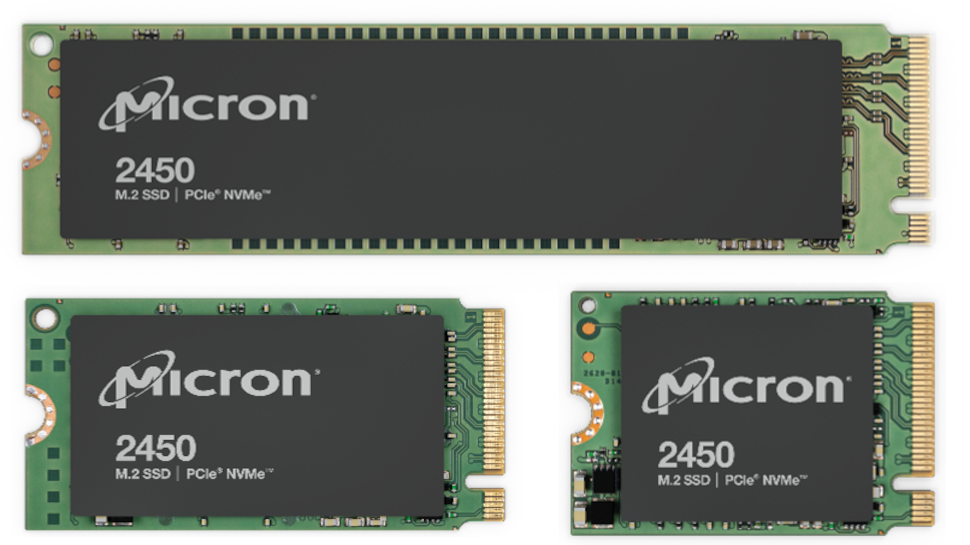Micron's new SSDs are built with data-hungry businesses in mind
New drives are Micron’s first PCIe 4.0’s SSDs

Micron has expanded its memory and storage products portfolio with several new releases based on 176-layer 3D TLC NAND technology.
Announced at Computex 2021, the new 2450-series and the 3400-series Solid State Drives (SSDs) feature a PCIe 4.0 interface and are designed for data-intensive workstation use-cases as well as for ultrathin, ultraportable notebooks.
While Micron hasn’t revealed the full specifications of the new SSDs, it shared that the 3400-series drives provide double the read throughput and up to 85% higher write throughput as compared to its predecessors.
- We've built a list of the best external hard drives out there
- Here's our list of the best portable SSDs right now
- Check out our list of the best cloud storage services available
“As artificial intelligence and 5G reach mainstream deployment, they are creating dramatic new potential for data in the post-pandemic world….Today we are debuting new memory and storage solutions that accelerate innovation, from powerful data center servers and faster client devices to intelligent vehicles at the edge,” said Micron CEO Sanjay Mehrotra.
Different price points
Micron shared that the 2450-series SSDs will be available in M.2-2280, M.2-2242, and M.2-2230 form-factors. Designed for workstations, the drives will be available in capacities of 256GB, 512GB, and 1TB.
On the other hand, the 3400-series SSDs are designed to serve high-performance applications. They’ll be available in the M.2-2280 form factor and offer capacities between 512GB and 2TB.
In addition to 2450-series and 3400-series SSDs, Micron also announced 128GB and 256GB densities of its 96-layer NAND memory designed for data-intensive automotive systems such as in-vehicle entertainment and advanced driver assistance systems (ADAS).
Sign up to the TechRadar Pro newsletter to get all the top news, opinion, features and guidance your business needs to succeed!
Part of its new portfolio of UFS 3.1 managed NAND products, Micron claims these new drives offer 50% higher sustained write performance as compared to its previous UFS 2.1 portfolio.
- Here's our list of the best cloud backup services around
Via VentureBeat
With almost two decades of writing and reporting on Linux, Mayank Sharma would like everyone to think he’s TechRadar Pro’s expert on the topic. Of course, he’s just as interested in other computing topics, particularly cybersecurity, cloud, containers, and coding.
